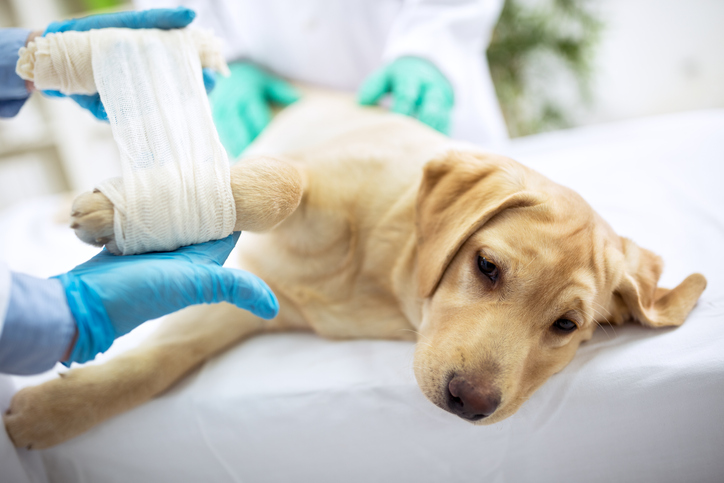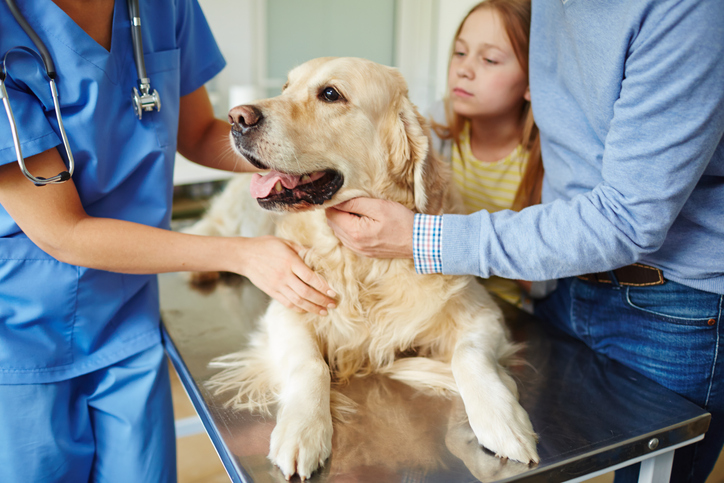Common Pet Emergencies in Greensboro, NC

Welcome to our article on common pet emergencies in Greensboro, NC. As pet owners, it’s important to be aware of the potential health risks and emergencies that can arise for our furry friends. In this article, we’ll look at some of the most common emergencies pet owners in Greensboro may encounter and what to do if you find yourself in such a situation.
Typical Greensboro Pet Emergencies
Like any other city, Greensboro has its fair share of pet emergencies. Some of the most common emergencies include ingestion of toxins or foreign objects, injuries from accidents, and severe illness or infection. It’s important to be aware of these potential emergencies so that you can take the appropriate action if your pet is ever in danger.
Some of the most common pet emergencies in Greensboro can include:
- Toxicity from ingesting poisonous plants or chemicals
- Heat stroke or heat exhaustion
- Trauma from car accidents or falls
- Gastrointestinal issues such as blockages or foreign body ingestion
- Allergic reactions
- Seizures or neurological issues
- Cardiac events
- Snake or insect bites
- Bloat or twisted stomach
- Respiratory distress
- Frostbite or hypothermia
- Anaphylaxis
- Parvovirus
- Distemper
- Rabies
- Leptospirosis
- Lyme disease
- Tick-borne diseases
It is necessary to be aware of these common pet emergencies in Greensboro and the associated symptoms so that you can act quickly and seek the required veterinary care. Remember, the key to ensuring your pet’s safety and well-being is to stay informed, be prepared and take preventive measures. If you suspect your pet is experiencing an emergency, contact your vet or the nearest emergency animal hospital immediately. It is always better to be safe than sorry when it comes to the health of your beloved pet.

Understanding the Symptoms
Recognizing the symptoms of a pet emergency can mean the difference between life and death for your furry friend. Knowing what to look for can help you act quickly and get your pet’s help. Some common symptoms of pet emergencies include vomiting, difficulty breathing, seizures, and unresponsiveness.
Here’s a quick list of some things to watch out for:
- Vomiting: The act of forcefully expelling stomach contents through the mouth.
- Difficulty breathing: A sign of respiratory distress, including rapid, panting, or open-mouth breathing.
- Seizures: A sudden attack of violent muscle contractions and loss of consciousness.
- Unresponsiveness: The state of being unresponsive or not reacting to stimuli.
- Lameness: Difficulty or inability to walk on one or more limbs.
- Discharge: Unusual secretions coming from eyes, ears, or nose.
- Swelling: Abnormal enlargement or puffiness of a part of the body.
- Abdominal pain: Pain or discomfort in the stomach area.
- Loss of appetite: Refusal to eat or drink.
- Behavior change: Sudden behavior changes such as aggression, depression, or restlessness.
- Excessive thirst or urination: The need to drink or urinate more than usual.
- Diarrhea: Loose or watery stools.
- Constipation: The infrequent or difficult passage of stools.
- Coughing: Expelling the air from the lungs with a sudden noise.
- Sneezing is expelling air from the nose with a sudden noise.
- Hiding: The act of seeking refuge and staying hidden.
- Crying or whining: Making noise to express discomfort or distress.
It’s important to be familiar with these symptoms so that you can act quickly if your pet is ever in danger.

Preparing for Pet Emergencies
Just like with any emergency, it’s important to be prepared for the possibility of a pet emergency. This means having a plan in place and having the necessary supplies on hand. Some things to consider when preparing for a pet emergency include keeping a list of emergency contact numbers, having a first aid kit for pets, and knowing the location of the nearest emergency veterinary clinic. By being prepared, you can ensure that you’re able to act quickly and get your pet the help they need.
Here are some things to consider when preparing for a pet emergency:
- Keep a list of emergency contact numbers, including your vet’s phone number, the closest emergency veterinary clinic, and the ASPCA Animal Poison Control Center.
- Keep a pet first-aid kit on hand. This should include gauze, adhesive tape, scissors, tweezers, and a pet-specific thermometer.
- Make sure your pet’s identification is up to date. This includes a collar with ID tags, a microchip, or both.
- Know the location of the nearest emergency veterinary clinic.
- Keep copies of your pet’s medical records on hand if you need to provide them to an emergency clinic.
- Familiarize yourself with pet CPR and basic first aid techniques.
- Keep a list of medications your pet is taking and the dosages.
By being prepared, you can ensure that you’re able to act quickly and get your pet the help they need. Remember also to have a plan in case you need to evacuate your home during an emergency, including having a designated emergency shelter and making sure your pet’s carrier or crate is easily accessible. Regularly review your plan and update it as needed.
Finding Emergency Veterinary Care in Greensboro, NC
In the event of a pet emergency, time is of the essence. Knowing where to find emergency veterinary care in Greensboro is essential. Some things to consider when looking for emergency veterinary care include the hours of operation, the types of services offered, and the clinic’s location. It’s also a good idea to have a list of emergency veterinary clinics on hand to quickly find one in an emergency.
Prevention and Maintenance
While it’s important to be prepared for the possibility of a pet emergency, it’s even better to prevent them from happening in the first place. Some ways to prevent pet emergencies include keeping your pet up-to-date on vaccinations, providing regular veterinary checkups, and being vigilant about your pet’s health. By taking steps to prevent emergencies, you can help ensure that your pet stays healthy and happy for years to come.
Conclusion
As pet owners, it’s essential to be aware of potential health risks and emergencies that may arise. By understanding the symptoms and being prepared, pet owners can act quickly to ensure their pet receives the help they need. Remember, your pet’s health and well-being are of the utmost importance, and by being prepared, you can help keep them safe and healthy.
If your pet is in need of emergency care, please call us at (336) 288-2688. Our team here at Happy Tails Emergency Veterinary Clinic is more than happy to assist you!
Recent Posts
About Us
At Happy Tails Veterinary Emergency Clinic in Greensboro, NC, our kind and knowledgeable team is available to provide gold standard emergency vet care for you and your pet. We’re available in the late night and early morning hours during the week, and 24/7 on weekends for your convenience.
